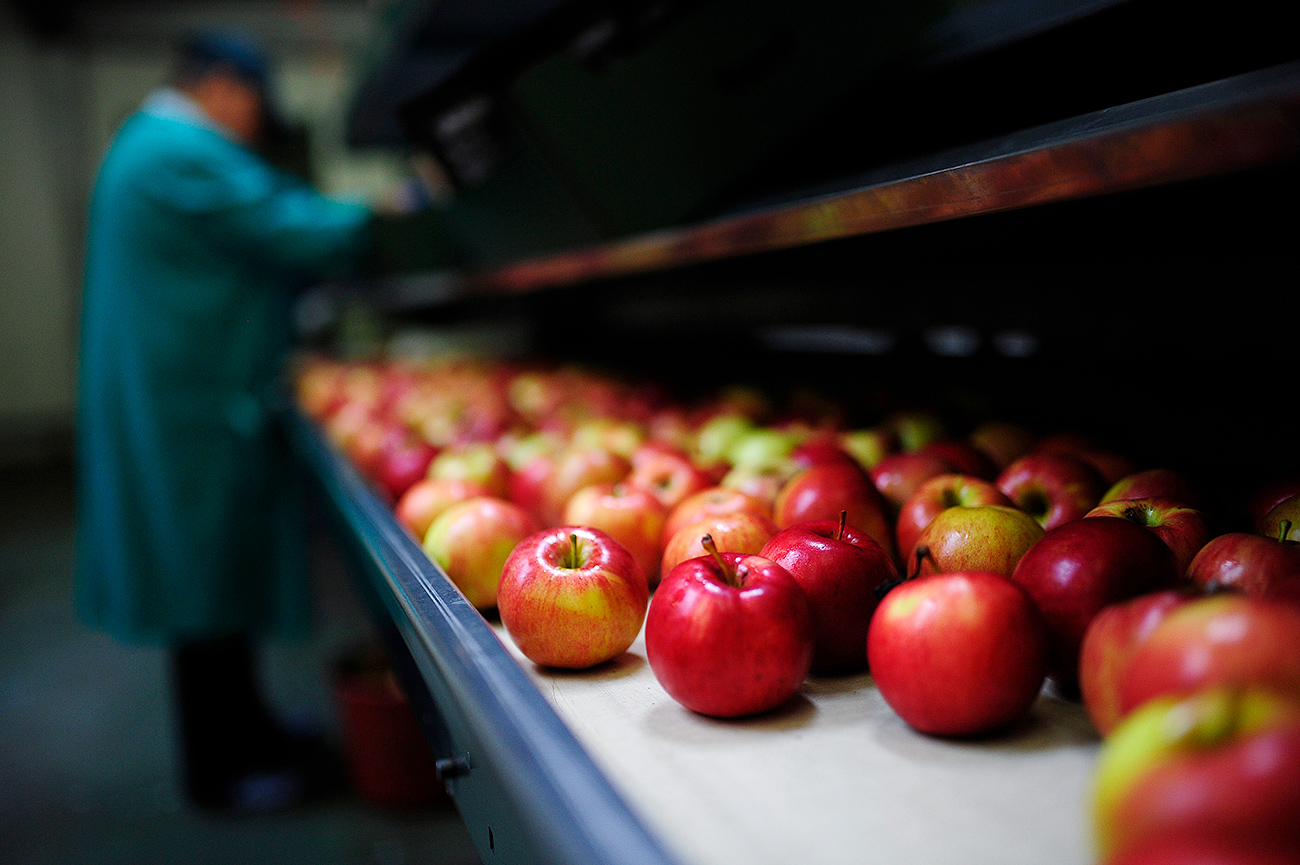
Fruit from Poland is delivered to Russian supermarkets disguised as Belarusian.
ReutersAccording to the Polish newspaper Dziennik Gazeta Prawna, Poland is exporting an increasing number of apples to Russia. Before sanctions were imposed on Russia in 2014, the country was receiving about 1.2 million tons of the fruit from Poland each year, but after the embargo exports fell to roughly 945,000 tons in 2015. However, 2016 witnessed an increase with 1.1 million tons of apples reaching Russia from Poland.
Fruit from Poland is delivered to Russian supermarkets disguised as Belarusian. "At the same time, the Russian, Belarusian, and Polish sides know of this situation but prefer to follow the principle ‘ask no questions and you'll be told no lies,'" the newspaper says.
One benefit of the sanctions is that Russian producers have profited from the domestic market in the absence of foreign competition. According to the Rosstat news agency, cheese production in the country has increased by 30 percent, meat by 11 percent, and vegetables by 12 percent. However, apples continue to be imported on a grand scale – three times more than Russia grows itself, which begs the question: Why is so little of the fruit being produced in the country?
"Russian fruit growers find themselves in conditions whereby they can't compete with the Polish," Pavel Grudinin, director of the Lenin State Farm – one of the biggest agricultural companies in the Moscow region – told RBTH.
"Abroad, state support for fruit growing covers 75 percent of all costs, while in Russia not more than 15 percent," Sergei Korshunov, chairman of the board of the Union of Organic Farming, explained in an interview with RBTH. In Poland, apple production is subsidized by the state, so Russian apples can’t compete in price, he says.
Saplings are cheaper since they don't need to be purchased abroad. Refrigerators serving several farms at a time are also built with state support, Korshunov explained. Up to 70 percent of the cost of equipment is reimbursed and even the export of produce is subsidized by the state. All this supports the disparity of prices in the fruit-growing sector on the Russian market.
The problems are exacerbated by a shortage of orchards and crop storage facilities in Russia. Over the past 20 years the number of fruit tree nurseries and fruit-growing farms in the country has fallen massively, says Korshunov. Research has also been suspended. "In total, there are about 200 fruit tree nurseries in Russia but big farms handling a million saplings for planting are few and far between. Meanwhile, the country needs 15 million young trees a year," he notes.
In the past two years the state has increased support for fruit growing. According to the Union of Organic Farming, $320 per hectare used to be allocated to setting up traditional orchards and now it’s $907. In the past about $350 per hectare was allocated to setting up fruit tree nurseries, and now it’s $3,400. Subsidies have also been increased for establishing intensive orchards and the eradication of old apple “plantations.” At present, according to experts, Russia spends over $43 million on fruit growing development. This is five times more than in 2013.
But so far investors haven't been too keen to go into this business despite the high profitability (about 25 percent). "It takes at least six years to grow a fruit-bearing apple tree," says Grudinin. "Therefore, with credit at annual interest of 10-15 percent, it is difficult to have a quick return on your money, although our apples are no worse than Polish ones."
The rate of growth of new orchards is almost matched by the eradication of the old ones. About 14,000 hectares of young plants are planted in Russia every year, and at the same time about 6,000 hectares of orchards are uprooted, while the same amount of space goes out of circulation.
The country also has a shortage of warehouses and only big agricultural companies can afford modern storage facilities. "What is needed is not just a warehouse but a storage facility with a special environment, including humidity and temperature control, and the use of special gas. This is a costly indulgence and the Russian state does not provide money for it yet," Grudinin continues.
According to him, there are regions in Russia with companies that grow apple orchards using modern technology, including the Kabarda-Balkar Republic, Krasnodar and Stavropol territories, and the Belgorod and Kaliningrad regions. However, all of them are experiencing problems with the storage of their produce and, as a result, their produce falls short of their competitors even in terms of product quality.
If using any of Russia Beyond's content, partly or in full, always provide an active hyperlink to the original material.
Subscribe
to our newsletter!
Get the week's best stories straight to your inbox